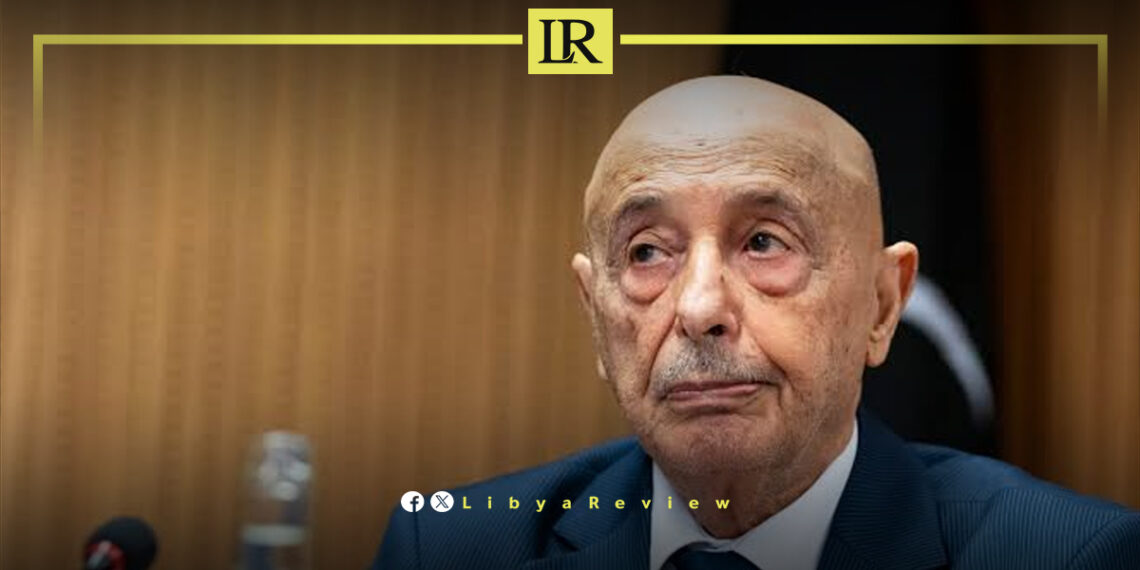The Speaker of the Libyan House of Representatives, Ageela Saleh, has expressed Libya’s openness to Italy playing a central role in the country’s reconstruction efforts. He emphasized the importance of economic and diplomatic cooperation between the two nations.
In an interview with the Italian news agency “Nova” during his visit to Rome at the invitation of his Italian counterpart, Lorenzo Fontana, Saleh highlighted the long-standing Libyan-Italian partnership, particularly in economic and trade relations.
Saleh stated that his discussions with Fontana focused on strengthening parliamentary diplomacy and implementing the 2008 Benghazi Treaty of Friendship. He invited Fontana to visit Benghazi, stressing the importance of collaboration in rebuilding Libya and restoring stability.
The Speaker noted the efficiency of Italian companies, particularly in the construction sector, and their potential contribution to reconstruction projects in Libya. He urged the resolution of delays in joint projects, including the “Highway of Peace.”
Saleh emphasized Libya’s wealth in resources but pointed out its reliance on Italian expertise, welcoming over 150 Italian companies already operating in the country. He called for further agreements to bolster their presence, proposing a meeting between Lorenzo Fontana and Belqasim Haftar, General Director of the Libyan Development and Reconstruction Fund, to discuss opportunities.
On the political front, Saleh called on the Italian government and the international community to recognize the Benghazi-based Libyan government as the country’s legitimate executive authority, elected to represent the will of the Libyan people.
He criticized ongoing support for the Tripoli-based outgoing Government of National Unity (GNU), led by Abdel-Hamid Dbaiba, whose mandate has expired. Saleh emphasized that stability in Libya requires a unified government committed to holding general elections and dismantling militias obstructing peace efforts.
Saleh specifically attributed the migrant crisis in Italy to the policies of the Dbaiba government, accusing Interior Minister Imad Al-Trabelsi of formerly leading a militia. He argued that the crisis is rooted in hunger, instability, and armed clashes in Tripoli, facilitated by militia groups funded by the GNU.
He reiterated that the Libyan parliament remains committed to supporting the electoral process as a step toward national unification and a stable future for the Libyan people.


